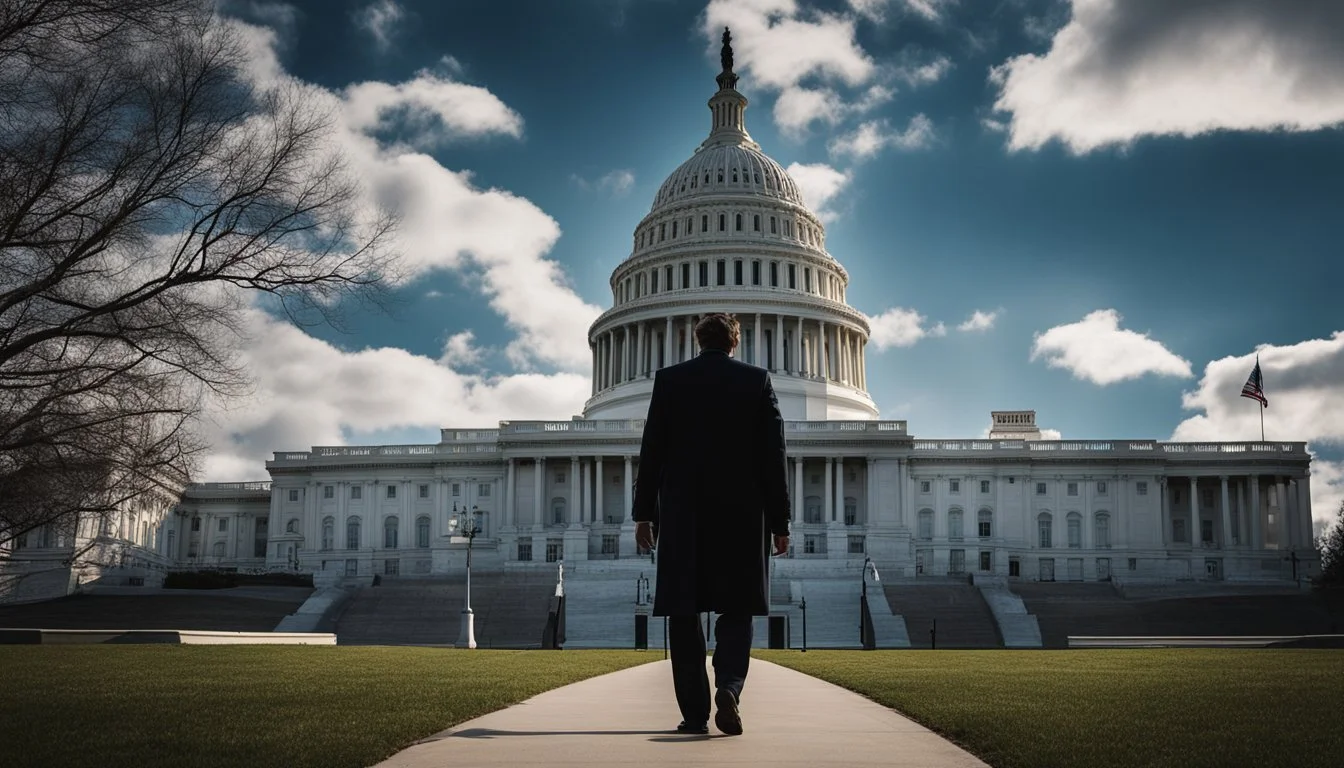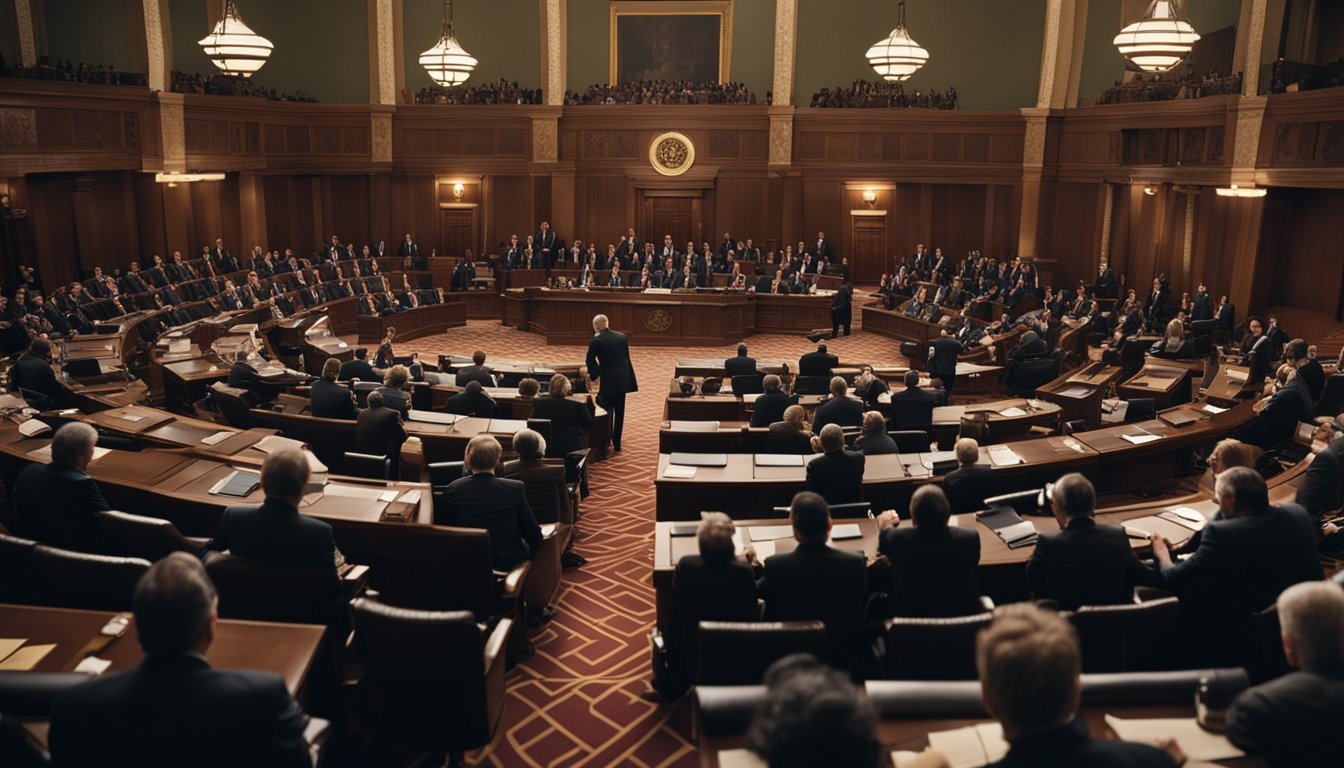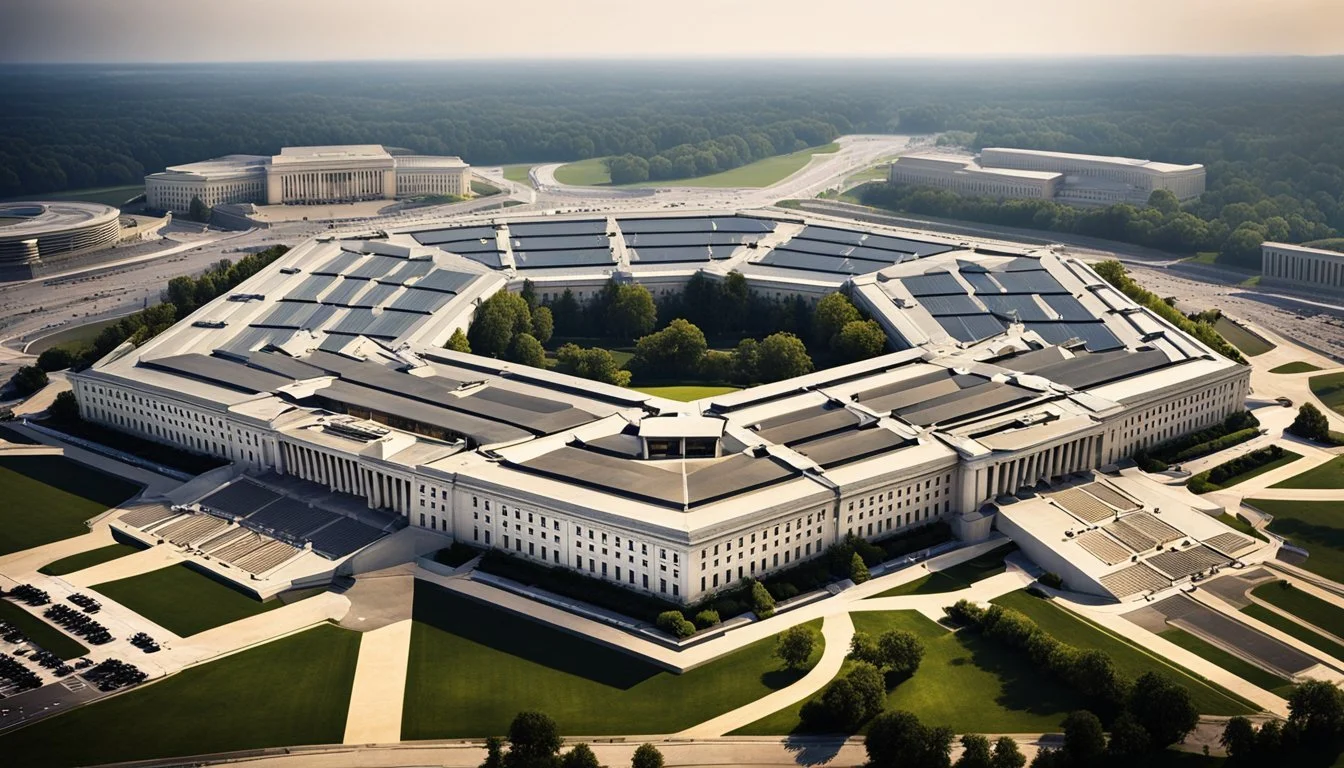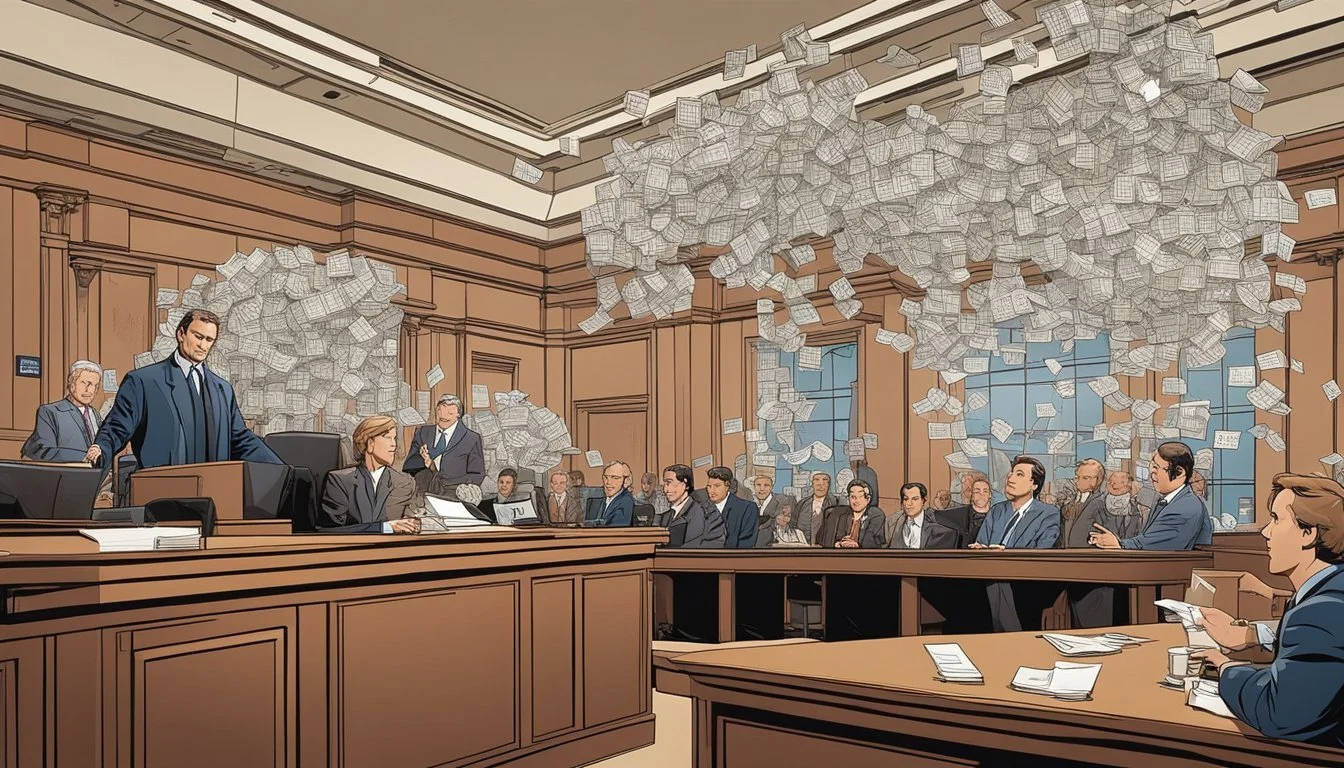10 True Crime Documentaries About Political Scandals in Washington, D.C
A Revealing Watchlist
True crime documentaries offer a gripping window into the darker aspects of society, unraveling intricate tales of deceit, corruption, and crime. These productions are particularly compelling when they spotlight political scandals in Washington, D.C., a city synonymous with power and influence. Understanding the complexities of these high-stakes machinations provides crucial insights into how political power can be both wielded and abused.
The intersections of politics and crime create narratives that are not just about individual wrongdoing but about systemic issues affecting governance and public trust. As viewers embark on exploring these documentaries, they gain a deeper appreciation of the multifaceted nature of political scandals. This article highlights ten must-watch documentaries that meticulously explore these real-life intrigues.
1) Scandal in the Senate: The Keating Five
The Keating Five scandal remains one of the most significant political controversies in U.S. history. In the late 1980s, five U.S. Senators were accused of corruption tied to the savings and loan crisis. The senators involved were Alan Cranston, Dennis DeConcini, John Glenn, John McCain, and Donald W. Riegle, Jr.
These senators were implicated for their connections with Charles H. Keating Jr., chairman of Lincoln Savings and Loan Association. The controversy arose from their intervention with federal regulators on behalf of Keating, who was later found guilty of fraud.
The Senate Ethics Committee conducted nationally-televised hearings in 1989, scrutinizing the relationships between the senators and Keating. They examined if the senators had improperly influenced the regulators. The hearings dragged on for months, capturing the nation's attention.
Although the senators escaped criminal charges, their reputations were significantly tarnished. This scandal highlighted the broader savings and loan crisis that cost taxpayers billions of dollars. The incident also sparked discussions on the need for tighter regulations on political influences in financial matters.
For more details on the incident, visit the Wikipedia page on the Keating Five.
2) The Iran-Contra Affair: A Web of Deception
The Iran-Contra Affair stands as one of the most notorious political scandals in U.S. history. During the mid-1980s, senior officials in the Reagan administration secretly facilitated the sale of arms to Iran, a country then embroiled in a protracted war and listed as a state sponsor of terrorism.
The goal was twofold: secure the release of American hostages held by Hezbollah in Lebanon and divert the proceeds to fund Contra rebels fighting the Sandinista government in Nicaragua. This was done despite an explicit congressional prohibition on further aid to the Contras.
Revelations about the affair exposed a complex and covert network of operations that involved multiple government agencies and secret players. Investigations uncovered that profits from Iranian arms sales were channeled to support the Contras, bypassing the legislative restrictions.
The scandal led to several investigations, including actions by the Senate Intelligence Committee, the Tower Commission, and an Independent Counsel. High-profile figures testified, and although some were convicted, many had their convictions overturned on appeals or were pardoned.
For more in-depth understanding of this affair, the documentary "The Iran-Contra Affair" (2004) captures the intricacies and the fallout of this dark chapter in U.S. politics. The Iran-Contra Affair (2004) - IMDb
3) The Watergate Scandal: The Fall of a President
The Watergate scandal began on June 17, 1972, when five burglars were arrested in the offices of the Democratic National Committee within the Watergate complex. This break-in set off a chain of events that would eventually lead to President Richard Nixon's resignation.
"Watergate" (2018) delivers an extensive overview of the entire scandal. Directed by Charles Ferguson, this documentary provides in-depth interviews and archival footage, shedding light on the political turmoil and illegal activities that plagued Nixon's administration. IMDb
Another noteworthy documentary is "Watergate Plus 30: Shadow of History" (2003). This film revisits the events and interviews key players involved in the scandal. It offers new insights and details the historical impact of the scandal on American politics. IMDb
For a more televised approach, the Discovery Channel's "Watergate" series (1994) co-produced with the BBC, is an essential viewing. It critically examines the events with a multi-part series. Episode 1 titled "Break-In" kicks off the intricate narrative, bringing viewers back to those pivotal moments. IMDb
These documentaries serve as critical resources for those wanting to comprehend how the Watergate scandal irrevocably changed American political history, culminating in the fall of a sitting U.S. President.
4) Frontline: The Secret Weapon of the Pentagon
Frontline's documentary "The Secret Weapon of the Pentagon" examines the covert operations and hidden tactics employed by the U.S. Department of Defense.
The series pulls the curtain back on classified projects and unknown military technologies, providing an unprecedented look at the strategic tools used in global defense.
Journalists conduct interviews with Pentagon officials, defense analysts, and military personnel to uncover the stories behind these secretive initiatives.
The documentary also explores the ethical implications and political maneuvering associated with these covert weapons, raising important questions about transparency and accountability in government operations.
For more details, visit the IMDB page for Frontline: The Secret Weapon of the Pentagon (2024).
5) The Clinton Scandal: Stories Behind Closed Doors
The Clinton scandal, revolving around President Bill Clinton's affair with Monica Lewinsky, captivated the nation and led to his subsequent impeachment. It became a monumental moment in American political history.
"American Crime Story: Impeachment" (2021) dives into the intricacies of the scandal. The series explores the complex dynamics with Monica Lewinsky serving as a producer. IMDB
Another notable documentary is "The Clinton Affair" (2018). This film provides in-depth interviews with key figures, including Monica Lewinsky herself. The interviews offer personal insights into the turmoil and its ramifications. IMDB
"Truth and Lies: Monica and Bill" (2018) by ABC News is another critical work. It provides a detailed breakdown of the affair, media frenzy, and the subsequent legal battles that ensued. IMDB
6) Inside the NSA: Surveillance Under Scrutiny
"Inside the NSA: Surveillance Under Scrutiny" (2014) explores the controversial operations of the National Security Agency. The documentary provides a detailed look into the agency's methods and tactics.
The film reveals how the NSA conducts surveillance on digital communications. This includes phone calls, emails, and online activities.
The documentary addresses public concerns about privacy. It delves into debates over government overreach. The agency's actions have faced increasing legal and ethical challenges.
This documentary sheds light on the balance between national security and individual freedoms. It offers insight into the covert world of intelligence.
For more information on the film, visit IMDB.
7) The Impeachment of Andrew Johnson: A Forgotten Conflict
The impeachment of Andrew Johnson stands as a significant, yet often overlooked, moment in American history. Serving as the 17th President, Johnson faced impeachment just years after the Civil War. The underlying conflict was rooted in his opposition to the Radical Republicans' Reconstruction policies.
Johnson's clash with Congress reached its peak when he violated the Tenure of Office Act by dismissing Edwin M. Stanton, the Secretary of War. This act led to his impeachment by the House of Representatives. The trial took place in the Senate, where his opponents believed they had strong grounds for conviction.
Despite high expectations, the Senate failed to convict Johnson by just one vote. Johnson's impeachment trial was the first of its kind for a U.S. President and remains a topic of study for its implications on executive authority and checks and balances.
The tension between Johnson and Congress highlighted the fragile nature of the post-war United States. This documentary sheds light on these dramatic proceedings and their lasting impact on American politics.
More information (2018).
8) Challenging Power: The Whistleblower Saga
This documentary explores the bravery and consequences faced by whistleblowers who expose political scandals within Washington, D.C.
From government insiders to intelligence officers, these individuals put their careers and lives at risk to reveal corruption and unethical practices.
The film takes a deep dive into key cases, such as Edward Snowden's disclosure of NSA surveillance programs and Daniel Ellsberg's release of the Pentagon Papers.
Interviews with the whistleblowers provide firsthand accounts of their motivations, experiences, and the repercussions they faced.
Legal experts and historians add context to the importance of whistleblowing in democratic governance.
The documentary also examines the laws intended to protect whistleblowers and whether they are truly effective.
It raises important questions about transparency, accountability, and the balance between national security and the public's right to know.
For more information on the documentary, visit IMDB.
9) The Enron Indictments: Political Connections Revealed
The Enron scandal was one of the most notorious corporate fraud cases in U.S. history, bringing down what was once the seventh-largest company in the country. Key executives, including CEO Jeffrey Skilling and Chairman Ken Lay, were implicated in extensive fraud and corruption.
The political connections surrounding Enron added another layer of complexity. Enron's extensive lobbying efforts and political donations raised questions about the influence they wielded in Washington, D.C. The company had close ties with several high-profile politicians and was known for its aggressive lobbying tactics.
Enron executives had significant political influence, often securing meetings with key policymakers. This political capital was used to push for deregulation in the energy sector, which ultimately facilitated their fraudulent activities.
Political figures were scrutinized for their relationships with Enron. The scandal highlighted the potential for corruption when corporate interests are closely tied to politics. This documentary not only exposes the fraudulent practices but also sheds light on the interconnected nature of politics and big business in Washington, D.C.
For more information, visit IMDB (2005).
10) The Pentagon Papers: An Exposé of Government Lies
The Pentagon Papers documentary delves into the unprecedented leak of classified documents detailing the United States' involvement in Vietnam.
In 1971, Daniel Ellsberg released a compilation of top-secret Pentagon documents, which revealed widespread government deception surrounding the Vietnam War.
The New York Times was the first to publish these explosive documents, causing widespread shock and eroding public trust in the government.
The release of the Pentagon Papers highlighted the severe lack of transparency and honesty within the highest levels of government, dramatically altering public perception.
The widespread dissemination of this information gave rise to significant legal battles, going all the way to the Supreme Court, which affirmed the right of the press to publish the material.
This documentary provides a comprehensive look into the intricate political maneuvers and ethical dilemmas that arose from this monumental leak.
Watch the documentary that sheds light on this key moment in history Wikipedia.
Historical Context of Political Scandals
Political scandals in Washington, D.C. have not only reshaped public trust but also led to significant shifts in American legislation and awareness. The role of media has been pivotal in uncovering these scandals, often galvanizing public opinion and triggering legal actions.
Impact on Legislation and Policy Changes
Political scandals can lead to major legislative reforms. For instance, the Watergate scandal led to the Federal Election Campaign Act Amendments of 1974, focusing on campaign finance reform. More recently, the revelations from the Iran-Contra affair spurred the Boland Amendment, limiting U.S. government assistance to the Contras in Nicaragua.
Scandals often heighten public scrutiny and demand transparency. Abuses of power exposed during the Teapot Dome scandal of the 1920s initiated reforms in governmental lease and procurement processes. In addition, the scandal emphasized the need for ethical standards in public office, influencing future legislative frameworks.
Role of Media in Exposing Scandals
Media has been crucial in exposing political scandals. Newspapers, television, and now digital platforms provide immediate dissemination of information. The Washington Post’s investigation into Watergate showcased how diligent journalism can uncover illegal activities and hold powerful figures accountable.
Documentaries and investigative reports play a significant role in educating the public. For example, documentaries such as "All the President’s Men" or the National Geographic’s "The Final Report: Watergate" provide in-depth analysis and evidence, often influencing public discourse and policy reforms.
The expanded reach of media creates pressure on governmental bodies to address corruption promptly, reinforcing checks and balances within democratic institutions. This public exposure often ensures that no abuse of power goes unnoticed or unchallenged.
Analysis of True Crime Genres
True crime documentaries use various filmmaking techniques and narrative structures to captivate audiences. Understanding these elements can enhance one’s appreciation of the genre and its craft.
Documentary Filmmaking Techniques
True crime documentaries often employ a range of filmmaking techniques to build suspense and engagement. Archival footage, interviews with key figures, and dramatic reenactments are staples.
For example, interview segments provide firsthand accounts, adding depth to the story. Archival footage situates viewers in the historical context, making events more vivid. Reenactments visualize critical moments that might otherwise be hard to comprehend.
Graphics and maps frequently illustrate complex networks of corruption. Clear visual aids simplify intricate details, aiding viewer understanding. Voice-overs and expert commentaries give additional insights, bridging gaps in the narrative.
Narrative and Storytelling in True Crime
Narrative structure is pivotal in true crime documentaries. Most follow a linear progression, detailing events in chronological order to maintain clarity. This method helps viewers follow the sequence of events leading to the crime and subsequent investigation.
Some documentaries opt for a non-linear approach, adding layers of mystery by revealing information out of sequence. This strategy builds suspense and encourages viewers to piece together the timeline.
Character development is crucial. In-depth profiles of victims, perpetrators, and investigators provide a rounded view of the case. Detailed backstories reveal motive and consequences, enriching the storytelling.






